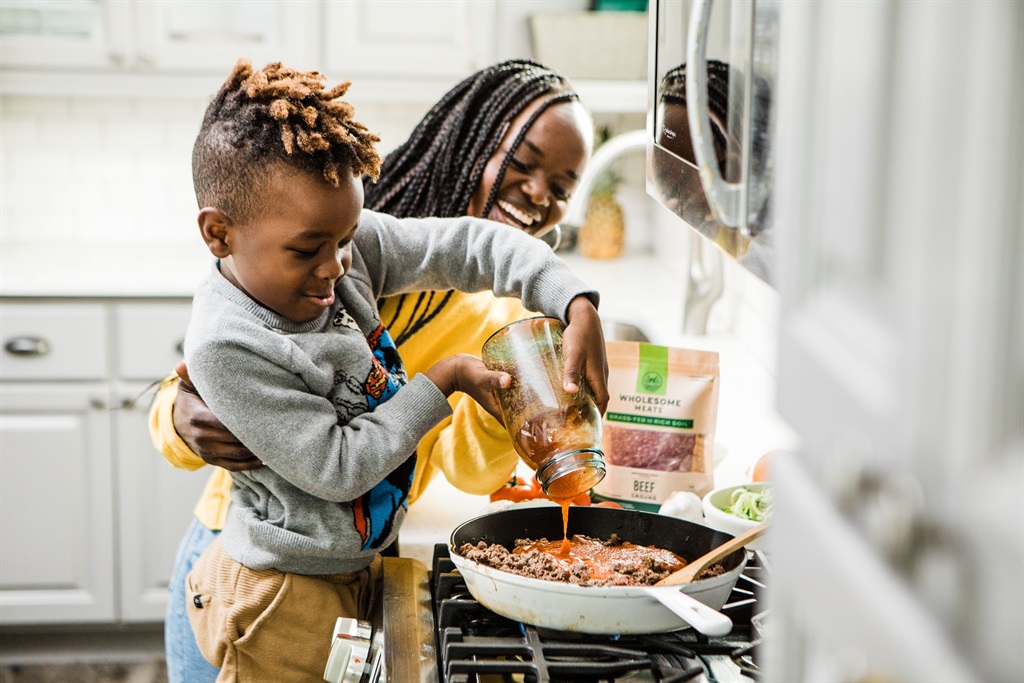
Random Acts of Kindness Week is observed from 14 to 20 February each year.
The aim is to celebrate the ways we as a society can become a positive influence in each other’s lives.
While adults often have some awareness of what kindness is, children are still learning what it means to be kind.
Educational Psychologist Anel Annandale shares the psychology of kindness and why it is important to encourage kindness in our children.
“When children are first born, their life view is very egocentric. This is a good thing as it is essential to survival and young babies and toddlers’ function with the Motto "me first". However, as they grow older, they need our guidance on how to fit in best in society and how to get along with others.
“Keep in mind that when kids are acting mean, they generally do not do so on purpose,” she explains.
Adding to what often results in children being unkind in certain instances, Anel says it may be that they haven’t been taught the correct ways to share and manage conflict or they may be feeling insecure, jealous or anxious.
“It is important to teach your child ways in which to first identify and then regulate their own emotions. Explain the problem to them without being critical or aggressive and help them find better ways of behaving by suggesting what they could do differently next time.”
READ MORE | ‘Be reasonable with the amount of responsibilities’ - 5 tips for success with introducing chores
How you address your child in this instance becomes important, particularly in the presence of other children or other people in general.
If one child displays unkind behaviours while their siblings do not, there are ways parents address this without having the child feel singled out.
Anel says, “It may help to come up with a ‘cue word’ when you see a situation unravelling to help your child understand that their behaviour is not acceptable, without making them feel singled out.”
When it comes to addressing siblings, Anel says: “Teach your children to value and respect each other and make it clear that in your family being mean will not be tolerated, whether they are mean to each other or to others.”
Anel shares five more tips to support your child’s journey with kindness:
1. Create a culture of kindness
Kindness doubles when we share it – a ripple effect that transforms our community into a happier place.
Creating a culture of kindness begins in childhood. Teach your children to ask themselves daily: “How can I be kind today?”
For young children, sharing a sweet is the most basic demonstration of kindness and this behaviour should be acknowledged and encouraged.
2. Praise character; discipline behaviour
Teaching kindness can change who a child becomes and gently moulds them into happier and more empathetic people.
Remember, when we want to reinforce behaviour it is important to praise the child's character and if we want them to stop certain behaviour, it is important to “criticise the behaviour and not the child's character”.
For example, you want to say something like: "You are a very kind person," as opposed to "that was a kind thing to do.” Eventually, this can become a self-fulfilling prophecy and lead children to spread their kindness in the future.
On the other hand, when disciplining a child, focus on their behaviour rather than their character, e.g. "That was a hurtful thing to do," not "you're being a hurtful brat.” Never accept rude behaviour, even if your child is going through difficult times.
READ MORE | ‘Help, my kid is entitled’ - 5 ways to teach children gratitude
3. Model the behaviour you want to see
We know that children are more likely to mimic our behaviour than listen to our advice. They do as we do and will learn to be either kind or unkind from us.
As you go about your day, ask yourself: Am I modelling to my children how to show respect to everyone I interact with, no matter their social status? Am I tolerant of others? Do I demonstrate cooperation, empathy and generosity?
There are more opportunities to model kindness for children who attend school outside of the home.
“It is vitally important that the expectations, values, rules and boundaries at home and at school are aligned,” she says.
“By chatting to your child about their day and also chatting to your child's teacher you will manage to stay connected to their development (both academic and social) at school and parents can help reinforce lessons about kindness that are taught at school and vice versa.
“Help your child to get to know and respect his classmates by arranging playdates and attending cultural days. It is also important that teachers and parents are kind to each other and demonstrate this for their children,” she adds.
4. Kindness equals boundaries and discipline
The happiest children are those with set boundaries and discipline instilled by their caregivers.
Discipline is about teaching and guiding behaviour; it is not about punishment. It is a way to teach our children to cope better with life and be more regulated, better-adjusted members of society. Be sure to always set boundaries before disciplining a child. That way, your child knows what is expected of them.
Never discipline your child out of anger but rather with the intent to teach better ways of behaving. Keep the three "R's" of discipline in mind: Remove, Reflect and Reconnect.
Destructive feelings are a normal part of growing up; being a strong role model and mentor will help them to navigate and manage BIG emotions.
5. Encourage random acts of kindness
Performing random acts of kindness helps children develop empathy and internalise moral principles. It creates a sense of pride in themselves and feelings of belonging and optimism.
There are many easy ways to incorporate random acts of kindness into our daily lives, and they need not cost much. This can include volunteering, donating food and sharing with those who have less.











